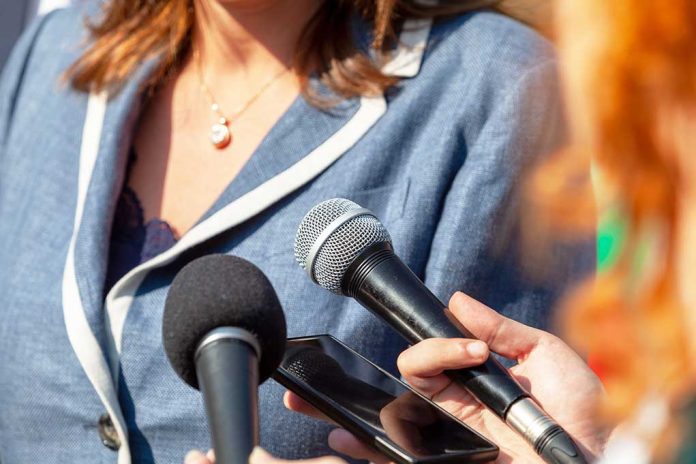
Margaret Brennan’s remarks on legacy journalism have sparked intense debate, revealing deeper challenges around media bias and neutrality.
Key Takeaways
- There is criticism of legacy media, specifically Brennan’s comments on free speech in Nazi Germany.
- Marco Rubio and JD Vance defend the critical role of free speech amidst Europe’s increasing censorship.
- Brennan’s statements reportedly reflected a misunderstanding of historical facts, particularly regarding Nazi Germany’s suppression of free speech.
- The debate underscores issues of media bias, especially within longstanding media institutions.
- Concerns rise over media figures’ credibility as objective truth arbitrators.
The Controversial Remarks
Media outlets have reported an unexpected controversy surrounding CBS’s Margaret Brennan. Allegedly, Brennan suggested that Nazi Germany’s use of free speech contributed to the Holocaust, a claim that has drawn widespread criticism. According to reports, her comments emerged during a discussion with Vice President JD Vance, who had voiced concerns over the increasing censorship in Europe.
The argument was further intensified when Secretary of State Marco Rubio publicly disagreed with Brennan’s perspective. Rubio emphasized that the Holocaust was executed by an authoritarian regime, not through the use of free speech. He refuted Brennan’s claims as lacking historical accuracy, noting that Nazi Germany was marked by a lack of free speech and dissent.
Media Bias and Credibility
This incident reflects broader issues of media bias, particularly in legacy media institutions. Critics argue that such outlets often demonstrate a liberal bias, raising questions about their ability to function as unbiased truth arbiters. Brennan’s comments have been cited as a potential indicator of these biases, highlighting the difficulty of achieving neutrality in contemporary journalism.
“Free speech was weaponized to conduct a genocide,” claimed Brennan.
The challenge remains for journalists to redefine their roles and accountability amid changing public expectations. According to various sources, mainstream media outlets have been accused of opposing free speech, further compounding skepticism about their objectivity and fairness.
The Role of Free Speech
Support for free speech was also echoed by Vice President JD Vance, who warned about Europe’s increasing censorship. Both Vance and Rubio’s positions emphasized the critical role of free speech in preserving democratic dialogue. Their standpoint stands in stark contrast to Brennan’s assertions, which were interpreted as a departure from historical fact.
“Free speech was not used to conduct a genocide. The genocide was conducted by an authoritarian Nazi regime,” noted Rubio.
Ultimately, the dialogue between Rubio, Vance, and Brennan underscores ongoing tensions in media coverage and perceptions of bias. Understanding these challenges invites a reevaluation of journalists’ responsibilities in providing balanced, truthful reporting in an increasingly polarized environment.


